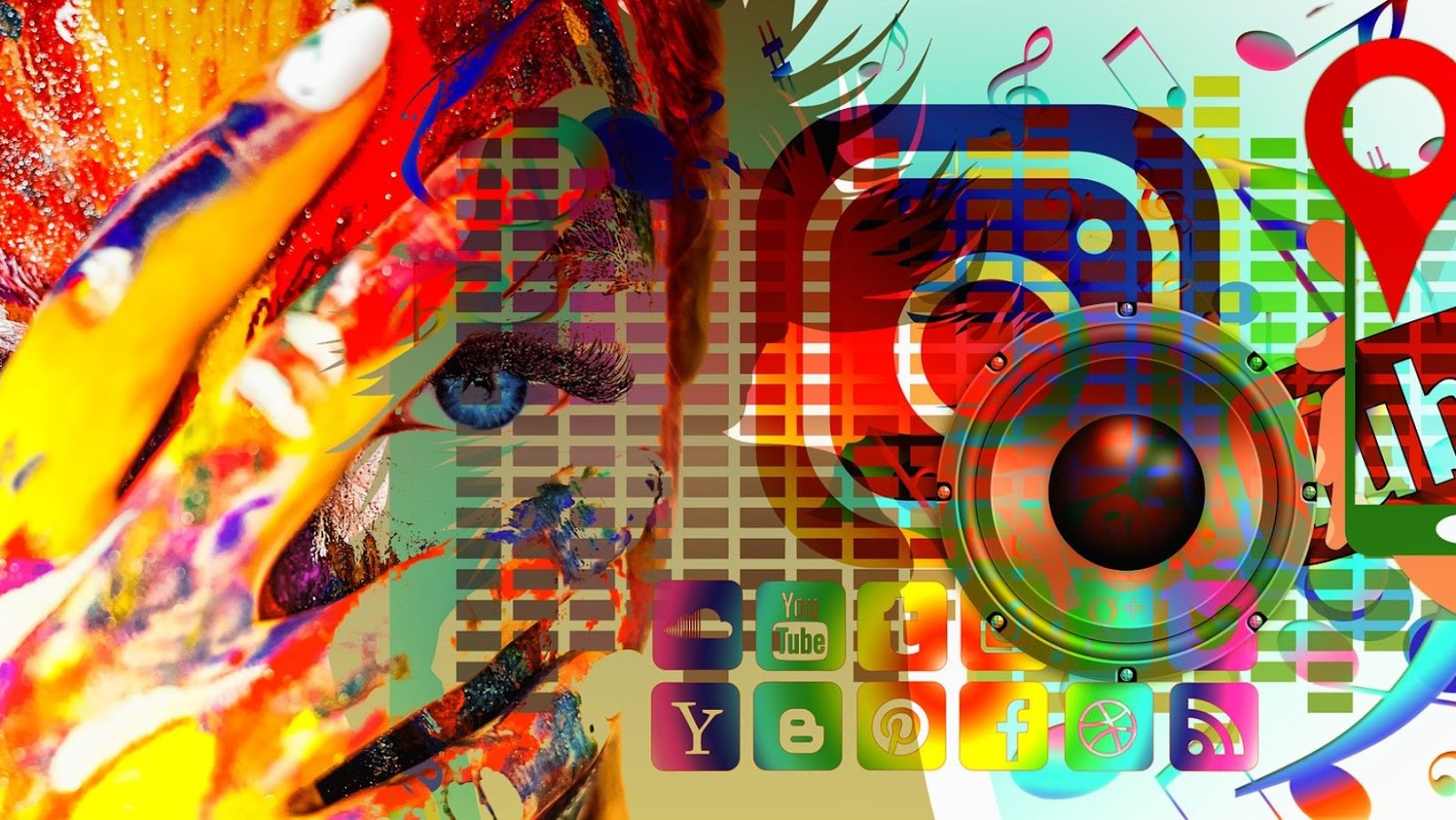Choosing generic social media usernames can make your online identity vulnerable to hacking and theft. These usernames, such as “JohnSmith” or “JaneDoe,” are easy for hackers to guess or crack, especially if you use them across multiple platforms.
When creating usernames, follow these tips to protect your identity:
- Make it complex: Use a mix of upper and lower case letters, numbers, and symbols.
- Make it unique: Avoid using the same username for multiple platforms. If one account gets compromised, it could put all your accounts at risk.
- Avoid personal information: Don’t use your name, birthdate, or address in your username. This information can easily be used to steal your identity.
Following these guidelines can help protect your online identity and keep your personal information safe from hackers and identity thieves.
Risks of Generic Usernames on Social Media Platforms
Using generic usernames on social media platforms can be risky, making your personal information vulnerable to hackers and identity thieves. Unfortunately, most of us use generic usernames such as our first name and surname, or a word that vaguely describes us, without considering the potential risks.
This article will discuss the risks of using generic usernames on social media platforms and what you can do to protect yourself.
Why using generic usernames is an open invitation to hackers
Using generic usernames on social media platforms makes your identity vulnerable to hacking and identity theft as they are easier for hackers to guess and attempt a breach to your accounts.
With lots of personal information readily available online, hackers can easily use a combination of your generic username and other sensitive information to gain access to your accounts or steal your identity.
Furthermore, generic usernames don’t reflect your brand and make it challenging for others to identify you on social media platforms. As a result, it may lead to missed opportunities and networking.
Thus, using unique usernames coupled with strong passwords is ideal to maximize your account’s security and prevent hackers from accessing your personal information.
Pro tip: Avoid using personal information, such as your name or location, in your social media usernames, as hackers can easily guess this information. Instead, combine unique words and numbers to make your username harder to guess.
How generic usernames make it easier for attackers to guess passwords
Using generic usernames on social media platforms can make your identity vulnerable to hacking and identity theft, as they make it easier for attackers to guess passwords.
Generic usernames like “user123” or “jane_doe” are easy to guess, lacking complexity and creativity. So instead, hackers use brute-force attacks, where they repeatedly guess different combinations of usernames and passwords until they get it right.
The simpler and more generic your username, the more vulnerable you are to these attacks.
To protect yourself, choosing unique and complex usernames that are difficult to guess or associate with your real identity is important. You can also use two-factor authentication and strong passwords to add an extra layer of security.
Impact of generic usernames on identity theft
Using generic usernames on social media platforms increases the risk of identity theft and hacking, making it easier for cybercriminals to target users and steal personal information.
Cybercriminals can use generic usernames like “user123” or “john.doe” to guess your password through brute force attacks or social engineering techniques. Once they access your account, they can steal your personal information, such as your name, email address, phone number, and location.
To protect yourself from identity theft and hacking, avoid using generic usernames and choose a username that is hard to guess, such as a combination of letters, numbers, and symbols. Additionally, enable two-factor authentication and use a strong and unique password for your social media accounts.
Pro tip: Remember to never share personal information such as bank details, social security number or any other sensitive information over social media.

Best Practices to Avoid Identity Theft Risks on Social Media
Are you aware that a generic username can make your identity vulnerable to hacking and theft? Unfortunately, many people use the same username across multiple social media platforms, making it easier for hackers to access and misuse their data.
In this article, we’ll examine the best practices you can use to avoid identity theft risks when using social media.
@screammadison
Using strong and unique usernames for each platform is critical in protecting yourself against identity theft and hacking attempts on social media.
Creating strong and unique usernames can make it much more difficult for cybercriminals to access your personal information. Some best practices for creating secure usernames are:
- Avoid using personal information, such as your real name, birthdate, or address.
- Use a mix of letters, numbers, and symbols to create a unique username.
- Don’t reuse usernames across different platforms.
- Avoid using common or generic usernames that could make you an easy target for hackers.
Pro Tip: Besides using strong and unique usernames, using two-factor authentication and keeping your personal information private is essential to safeguard your identity on social media.
@allstar55
Enabling two-factor authentication is a recommended best practice to avoid identity theft risks on social media platforms, especially if you have a generic username.
Two-factor authentication is an additional layer of security that requires you to provide two forms of identification to log in to your account. This process can help protect your account from unauthorized access and identity theft attempts.
Here’s how to enable two-factor authentication on some popular social media platforms:
Facebook: Go to your security settings, select “Two-Factor authentication,” and follow the prompts to set it up.
Twitter: Go to “Settings and Privacy,” select “Account,” and select “Security.” From there, you can enable “Two-Factor authentication.”
Instagram: Go to your profile, select the three lines in the upper right-hand corner, and select “Settings.” From there, select “Security,” then “Two-Factor Authentication.”
By enabling this additional security feature, you can feel more secure about your online social media presence and make your identity less vulnerable to hacking and identity theft attempts.
Pro tip: Consider using a unique username and password for each social media account to further protect your identity.
@ufagu
Regularly monitoring and managing social media privacy settings is crucial to control personal information and avoid identity theft risks on social media. However, having generic social media usernames can make your identity vulnerable to hacking and identity theft, regardless of how secure your privacy settings are.
Here are a few best practices to mitigate identity theft risks on social media:
1. Avoid generic social media usernames as much as possible.
2. Ensure your social media privacy settings are set to the highest security level.
3. Turn on two-factor authentication for your social media accounts.
4. Be wary of friend requests or direct messages from unknown individuals.
5. Avoid sharing sensitive personal information, such as your phone number, address, or social security number, on social media unless necessary.
By following these best practices, you can help protect your personal information from potential identify thieves on social media. Pro Tip: Remember, the internet is an open forum, and once information is out there, it’s challenging to completely erase it. Taking preventive measures to protect yourself is always better than dealing with the consequences of identity theft.

How to Choose a Strong and Unique Username for Social Media
Choosing a strong and unique username for your social media accounts can be the most important decision to ensure your online privacy and security. Unfortunately, many users choose generic usernames, such as donuts123 or goodtimes9, but these can put your identity at risk of hacking and identity theft.
In this article, we’ll discuss how you can choose a secure username to protect your online identity.
Tips on creating a strong and unique username
Choosing a distinctive username is important to protect yourself from identity theft and hacking. Here are some tips on creating a strong and unique username.
1. Avoid generic usernames that are easy to guess, like “user123”.
2. Use a combination of numbers, letters, and symbols to make your username more complex.
3. Avoid using personal information, like your name or birthdate, as part of your username.
4. Use your favorite hobby or passion as inspiration for your username.
5. Incorporate humor or puns to make your username memorable.
Remember, a strong and unique username is an important part of protecting your personal information online from the threat of hacking and identity theft.
@mlkcrs
When choosing a username for your social media profile, avoiding using easily guessable information is essential because generic social media usernames can make your identity vulnerable to hacking and identity theft.
Using your real name or common words like “password” or “admin” is a terrible idea because it’s effortless to guess and makes it easier for hackers to infiltrate your online presence. So instead, use upper and lower case letters, numbers, and symbols to make your username more secure.
You can also use a username generator to create unique and creative names that are difficult to guess. Always be cautious of the personal details you include in your username, such as your birthdate or location, as these can make you more vulnerable to identity theft.
Pro tip: Regularly updating your username can also help keep your social media profiles secure.
Examples of strong and unique usernames on social media platforms
Creating a strong and unique social media username is crucial to protecting your online identity from hacking and theft. An original username will make it harder for attackers to access your personal information.
Here are some examples of strong and unique usernames:
1. @PixelatedChaos – a creative and memorable username that uses descriptive words and alliteration.
2. @EchoTango – a username that combines two words to create a unique and catchy name.
3. @LuminousNova – a username that combines two words to create a unique and memorable name.
4. @InTheJungle – a username that is easy to remember, with a simple and descriptive message.
Avoid using generic usernames that hackers can easily guess, such as birth dates, full names, or common words. Instead, be creative in creating a unique username that reflects your personality or brand. Pro-tip: Include numbers, symbols, or capitalized letters to increase the strength of your username.

Resources for Keeping Identities Secure on Social Media
With the prevalence of hacking and identity theft, it is more important than ever to be mindful of the security of our online identities.
Using generic usernames on social media can put us at a higher risk of being victims of fraud and identity theft.
In this article, we will discuss steps to ensure our identities are secure on social media sites.
List of tools and resources for managing privacy and security on social media
Protecting your privacy and security on social media is crucial in today’s digital age. Here is a list of tools and resources that can help you manage your online identity:
1. Two-factor authentication tools: Google Authenticator adds security to your social media accounts.
2. Password managers: Password managers such as LastPass and 1Password can help you generate strong and unique passwords for each social media account.
3. Privacy policy checkers: Websites such as Terms of Service; Didn’t Read (TOSDR) and PrivacyFix can help you understand social media platforms’ privacy policies and terms of service.
4. VPNs: Virtual Private Networks (VPNs) can help protect your online activity from prying eyes by encrypting your internet connection.
5. Generic usernames: Generic usernames that don’t reveal your name or personal information can help protect your identity from hackers and thieves.
Pro tip: Always update your social media accounts with the latest security features and use these tools and resources to strengthen your online privacy and security.
@fer_ry499
Using password managers is essential for safe and effective password creation and management. Not only does it make it easier to remember and store your passwords securely, but it also offers several benefits that ensure your online safety.
Here are the benefits of using password managers:
Secure password creation: Password managers can generate long and complex passwords unique for each account, making it almost impossible for hackers to guess or crack them.
Simplified password management eliminates the need to remember multiple passwords for different accounts, making it easy to manage and update passwords across all devices.
Two-factor authentication: Some password managers offer two-factor authentication, which adds an extra layer of security to your account.
Encrypted storage: Password managers often use encryption technology to store your login information, making it safer than using a simple text document or spreadsheet.
Protecting your online identity is crucial, and using password managers is a simple yet effective way of enhancing your online security. Pro Tip: Avoid using generic social media usernames, making your identity vulnerable to hacking and theft.
The role of educational resources in promoting secure social media practices
Educational resources are crucial in promoting secure social media practices, including using unique and secure usernames to prevent hacking and identity theft.
Generic social media usernames, such as “johnsmith123” or “maryjane87,” can make your identity vulnerable to cybercrime since these usernames are easy to guess or obtain via data breaches.
Here are some resources to help keep your identity secure on social media:
- “Stay Safe Online” by the National Cyber Security Alliance provides numerous guides, tips, and best practices for staying safe on social media.
- “The Ultimate Guide to Social Media Security” by Norton offers in-depth information on social media threats and how to protect yourself.
- “A Parent’s Guide to Cybersecurity” by the Federal Trade Commission provides a comprehensive overview of online safety tips for parents and their children.
Remember to use a unique and secure username when creating your social media accounts, and be cautious about sharing personal information online.
Pro tip: Use a password manager to generate strong passwords for your social media accounts and enable two-factor authentication for added security.


 By
By 



